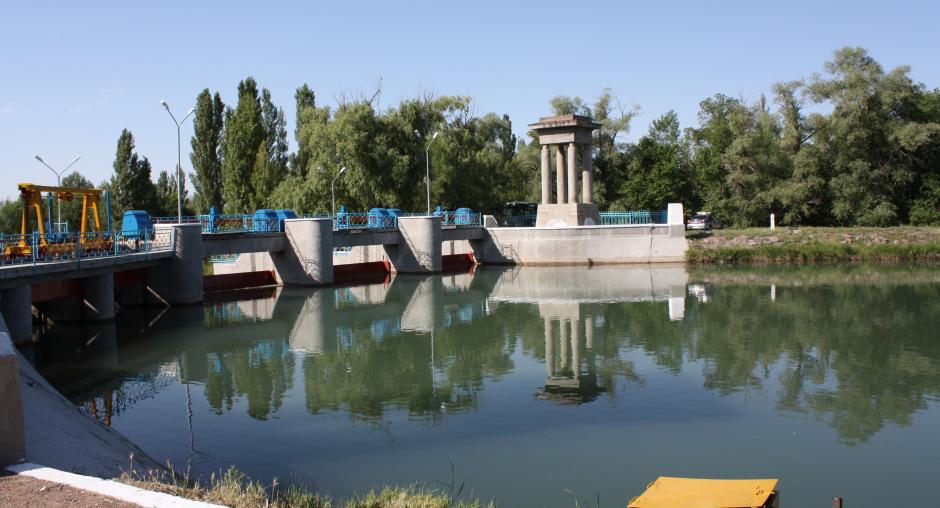OSCE promotes best practices on trans-boundary water management

Participants of a meeting held in Bishkek on 23 May to mark ten years of an OSCE-supported Trans-boundary Water Management Commission between Kazakhstan and Kyrgyzstan, summed up the results achieved under the initiative and charted the way forward.
The anniversary meeting brought together fifty-five representatives from Central Asian water authorities, public and private sector and international organizations dealing with water management issues who discussed the Chu-Talas Commission’s experience in efficient sharing and usage of trans-boundary water resources and its environmental activities.
“The work of the Chu-Talas Commission is a break-through in water management in Central Asia and relations between the countries in this field. It demonstrates a new approach to addressing issues related to shared responsibility and management of trans-boundary water resources,” said Ambassador Alexander Keltchewsky, the Head of the OSCE Centre in Astana. “The Commission’s activities contribute to better co-operation between Kazakhstan and Kyrgyzstan on the Chu and Talas rivers, and can be used as a model for trans-boundary integrated water resources management in Central Asia.” He added that the OSCE Centre has assisted the dialogue under this project as part of promoting the enhancement of regional co-operation to ensure rational and co-ordinated use of resources in Central Asia.
Chairman of the Water Resource Committee of Kazakhstan Anarbek Orman said: “Since ancient times, two brotherly peoples - the Kazakhs and the Kirghiz- lived in friendship and peace in the basins of the Chu and Talas rivers. This became the basis for signing of an intergovernmental agreement between the governments of Kazakhstan and Kyrgyzstan on the use of water management facilities of intergovernmental status on the Rivers Chu and Talas.”
“The Republic of Kazakhstan has allocated 3.83 million USD to the technical maintenance of water facilities for trans-boundary use, and will continue fulfilling its obligations under the agreement based on the principles of equality and mutual understanding," he said.
Chairman of the State Committee for Water Management and Reclamation of Kyrgyzstan Ziyadin Zhamaldinov said: "The five-year path of creating the Commission was not easy, but to date the Commission Chu-Talas is a reliable platform for bilateral cooperation to address water issues in the basins of the Chu and Talas rivers. Life dictates the need to expand the scope of the Commission. Introducing at the national level principles of integrated water resources management in the basin, ensuring transparency of decision-making, involving the public in this process are among key challenges the Commission will address in the future."
The meeting participants issued a set of recommendations underlining that Kyrgyzstan and Kazakhstan have found a way to share responsibilities and benefits related to water infrastructure used both by upstream and downstream countries. The establishment of the Bilateral Commission was important for stable, integrated, mutually beneficial and co-operative trans-boundary exchange of resources.
The anniversary event, which was part of a joint project assisting Kazakhstan and Kyrgyzstan in trans-boundary water management of Chu and Talas Rivers, was organized with the support of the OSCE Centre and in partnership with the Asian Development Bank, the United Nations Economic Commission for Europe and the water authorities of the two countries.
